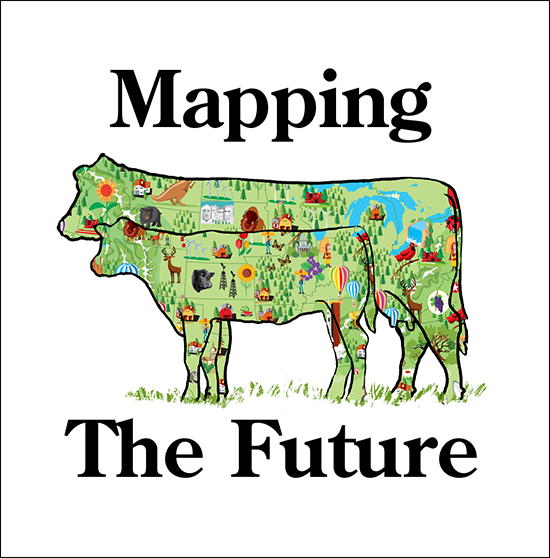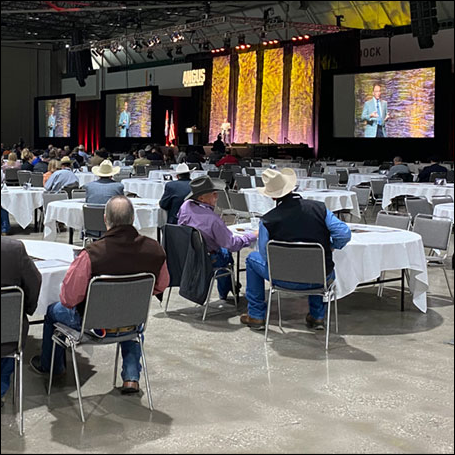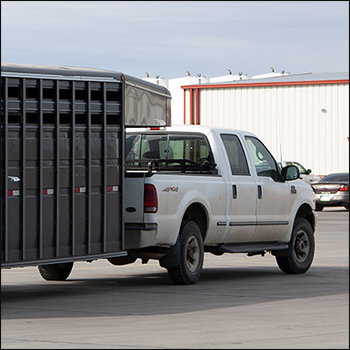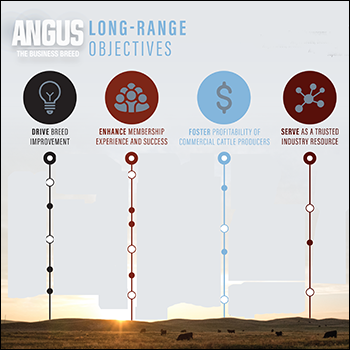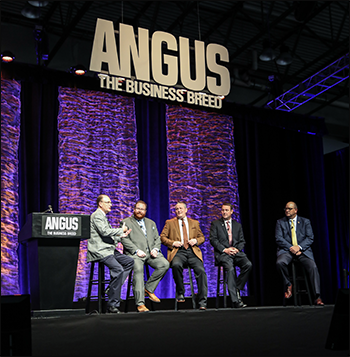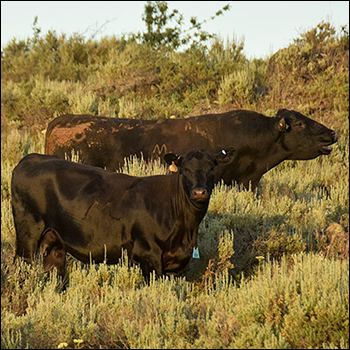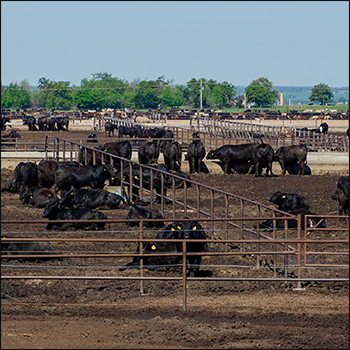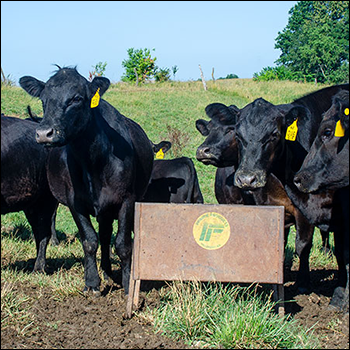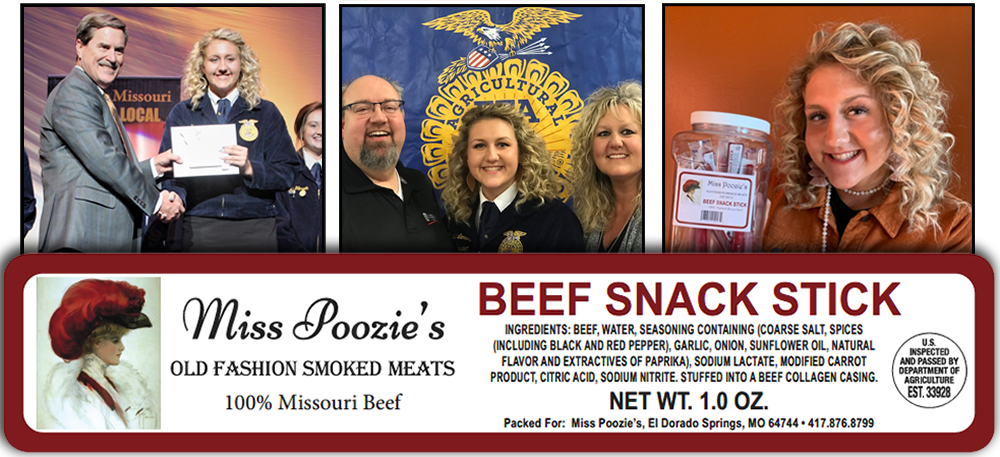
Lemons Into Meat Sticks
FFA member thinks outside the box with direct-marketing venture.
 |
Because the whole animal is used in producing about 3,400 beef sticks per carcass, Kraysen Leornard pays attention to the genetics going into her steers. |
Direct marketing has gained fervor in 2020, but 17-year-old Kraysen Leonard was ahead of the curve, turning her FFA project into a viable direct-marketing and retail business. The high school senior at El Dorado Springs in Missouri turned proverbial lemons into literal meat sticks when a knee injury sidelined her from showing cattle and playing sports.
She wanted to do something different for her FFA agribusiness project, wanting to develop the “bright, newest thing.” After attending the Missouri Agribusiness Academy her sophomore year, she and her father, Todd, tweaked some ideas she brought home. Instead of selling specialty cuts from her show steers, they decided to create beef sticks instead. They liked the marketability of something convenient.
Leonard toured several packing plants and discussed at length how she wanted her business to look. She found a plant out of Lockwood, Mo., that could process a calf and also handle all of the packaging and labeling. The plant is USDA-inspected, so she can sell the meat sticks at retail.
This meant she needed to have a label designed and, most importantly, a business name. She didn’t need to think long on what her business name would be. When she was in utero, her parents didn’t tell anyone her name, so her uncle decided to call her Poozie. The nickname stuck. It’s even on her license plate, she laughs.
The nickname works because it’s so out-of-the-ordinary. She decided to call her business Miss Poozie to give it some feminine flair, in contrast to her main competition of Slim Jims® and beef jerky. She wanted to go with an old-fashioned logo, and found a saloon-lady graphic that worked perfectly.
With business name and label in hand — after several weeks getting approved — she also had to decide on the composition and flavoring of the product itself. With the help of staff at Lockwood, she developed her own flavor profile — one that isn’t used at the Lockwood retail store. She also says she didn’t want her beef sticks to feel greasy. The whole carcass goes into beef stick production, not just end meats.
Being choosy
Because the whole animal is used in producing about 3,400 beef sticks per carcass, she pays attention to the genetics going into her steers.
 |
After talking with local cattlemen Rick and Scott (pictured) Casey of 5C Ranch, she was able to use their Hinkle’s Prime Cut Angus bull. |
After talking with local cattlemen Rick and Scott Casey of 5C Ranch, she was able to use their Hinkle’s Prime Cut Angus bull. The use of the bull was traded for some barbecue, she laughs, because her family used to run a restaurant and still caters. She owns five cows and calves, and uses expected progeny differences (EPDs) to select her females to ensure quality where she doesn’t have quantity.
After hurting her knee, that year’s show steer started this whole beef-stick project, because necessity is the mother of invention. She admits she thought it would probably be a one-time thing. However, another tear in her meniscus meant showing cattle was again off the table. Her FFA-award-winning experiment needed to be a viable business. Fortunately, it was.
Business sense
The blessing and a curse of a small business is size. Being in a rural community, her market is small, but that has been a blessing because the community of El Dorado Springs rallied around Miss Poozie’s Old Fashion Smoked Meats. Local gas stations and grocery stores carried her products. The chamber of commerce promoted her products. Private patrons ordered boxes of products. Advocating on Facebook even garnered her a customer from Louisiana.
Her community network is large because her dad is a banker and her family has been in foodservice in one form or another, and she has played an active part throughout her life. However, her FFA experience has given her poise and polish, and she has expanded her marketing to other towns.
While a steer can produce about 3,400 beef sticks, she is now almost out of product. She’s in the process of getting another steer butchered to restock. Her focus on providing a differentiated, premium product means demand hasn’t waned.
“My community has been so supportive, and I just want to be associated with the fact that you can put your mind to whatever you want to do with a strong, positive attitude and being firm in what you believe in. Have that work ethic to push through with beef prices or the economy right now. My community and family continue to support me through everything I do,” she says appreciatively.
High school seniors are often asked about their future plans. Leonard says she wants to continue and even expand this business while at college. She wants to see her beef sticks in gas stations and grocery stores across the state.
She offers this advice: “Definitely have that one-on-one communication skill. That’s the biggest part — being able to sit down with someone and explain what you’re selling or what you’re talking about. You definitely want to know every aspect that goes into your product or what you’re trying to sell. That’s probably the Number 1 key.”
“The second one I would say is you have to know what will kick off and be a hit. I was just expecting to sell around my local community. I didn’t really think it would get outside of my small town, but seeing the support through my FFA chapter and through communities all around, I couldn’t be more grateful. Stay strong and keep fighting and have a positive attitude about it,” she continues.
Recordkeeping is a big skill she’s learned from this endeavor, and fearlessness to find new markets.
“God has blessed me with being able to just continue with this agribusiness. I love being able to use my voice to advocate for the beef industry and the agriculture world. I’ve been with FFA, and I’ve been to state the past years with public speaking, and it’s something I want to go into and continue advocating for agriculture,” Leonard says.
Editor’s note: Photos courtesy Kraysen Leonard.
